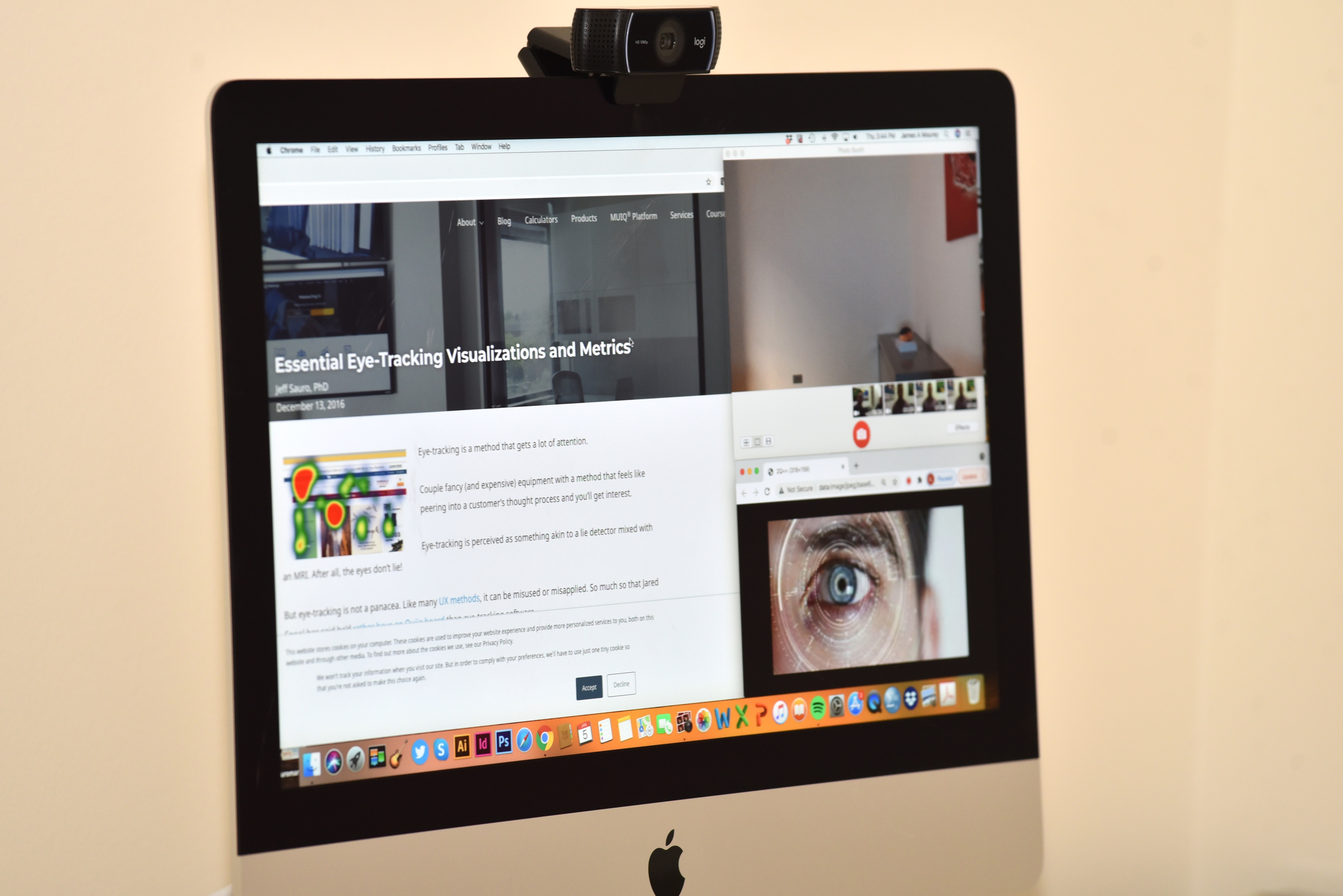
Ignac
io Luri and Jennifer Tatara have been appointed co-directors of the Beta (Business Education in Technology and Analytics) Hub. Their appointment starts in the 2024-25 academic year. The Beta Hub was launched in January 2023 as a resource for students and faculty to access cutting-edge technologies. But for both Luri and Tatara, the greatest value of the Hub is its role as a gathering place: as a nexus of teaching, research and industry, where collaborations are forged that might never have occurred otherwise.
A Toolbox

“For a lot of these tools,” said Tatara, “the biggest issue is knowing that they exist.”
The tools available at the Beta Hub include those that Tatara uses in her neuromarketing research. Eye-tracking software yields insights into where consumers’ focus is drawn. Galvanic skin response, a measure of miniscule amounts of sweat, correlates with subjects’ emotional engagement.
“We can use these tools to see into the decision-making process in a different way,” said Tatara, “—to get into the black box of decision-making. We need a wide range of tools to get the full picture. But without biometric tools, you’re missing a piece of that picture.”
Other tools at the Beta Hub yield insights of their own. VR headsets allow researchers to create virtual environments or augmented reality experiences for their subjects to navigate. A specialized computer lab enables exploring Generative AI and Web 3.0 tools like blockchain or cryptocurrency.
Finally, a state-of-the-art content creation studio has proven especially popular among students who are eager to try out podcasting and video production — and among faculty who can now weave these media into their teaching.
A Nexus

“Somethi
ng that I am personally invested in and excited about,” said Luri, “is building bridges with industry.” Connections to industry have long existed across Driehaus. But, Luri said, they tend to be informal, dispersed across departments and units. The value of the Beta Hub is that it can serve as a nexus for these collaborations.
“We have really skilled and smart students, graduate students and faculty doing research that, when you put it in the hands of companies and the community, can be huge,” said Luri.
Since it launched, the Beta Hub has welcomed Driehaus students and faculty – whether for teaching, research, or simply trying out a new tool. New changes on the horizon promise to make the Beta Hub more welcoming yet.
“The Beta Hub has always been, more than anything else, a shared space,” said Luri. “Something that has changed recently is that it has become, literally an open-door space.”
Outgoing director Jim Mourey worked to ensure that graduate student assistants can staff the Hub, allowing it to keep its doors open to anyone — student, faculty, or industry or community partner — who might benefit from using the tools available there.
The Beta Hub’s Future
For both Luri and Tatara, the Beta Hub promises to transform how stakeholders at Driehaus and beyond collaborate.
“One of our main missions is to break down siloes,” said Tatara. “In order to conduct comprehensive research, it has to become more multidisciplinary, more multi-method. The Beta Hub provides a space to do that.”
“When it comes to theory,” Luri echoed, “we’re all dispersed; we all have different languages.” The tools at the Beta Hub, he continued, are a way for researchers with different approaches to come together.
"At the end of the day, we’re all researchers; these are our toys,” said Luri. “It’s a way to get together.”
For more information about the Beta Hub, including how to use it for teaching and research, visit https://business.depaul.edu/about/centers-institutes/beta-hub/Pages/default.aspx.